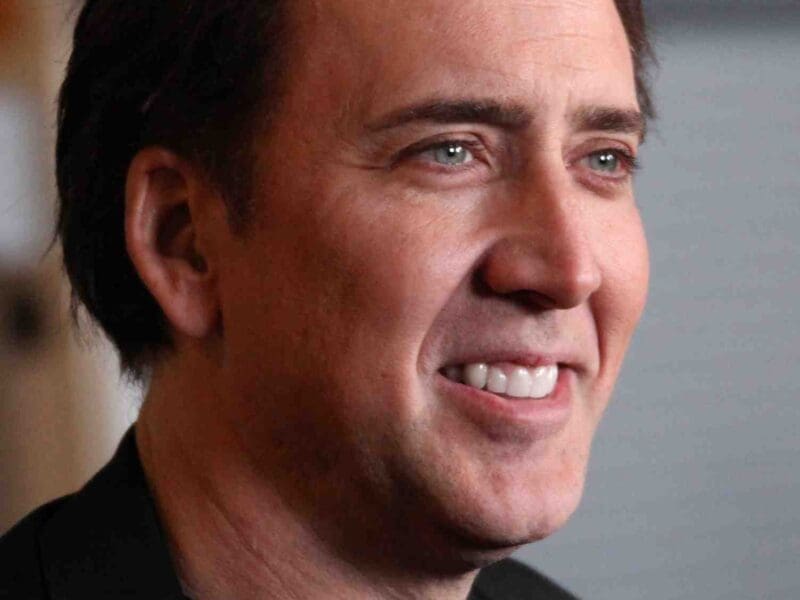
In Heaven: Celebrating the surreal sounds of David Lynch
Surreal sounds
Last year, IndieWire published a piece on Dean Hurley – auteur David Lynch’s supervising sound editor & long-time employee – to find out how he worked with Lynch to create cinema through sound. As Hurley explained, Lynch “has been eternally fascinated with sound creation — that’s where so much of his sensitivity exists. Even if he wasn’t making films, he’d probably be making radio plays.”
This is something that is closely associated with Lynch’s cinematic work. As one of the greatest auteurs in the modern age, the director has not only changed the way we watch and view movies, but also the way we hear them. Music plays a vital role (whether it be bespoke scores or repurposed songs) to creating the dreamlike, surreal, and often unsettling moods of the worlds he creates.
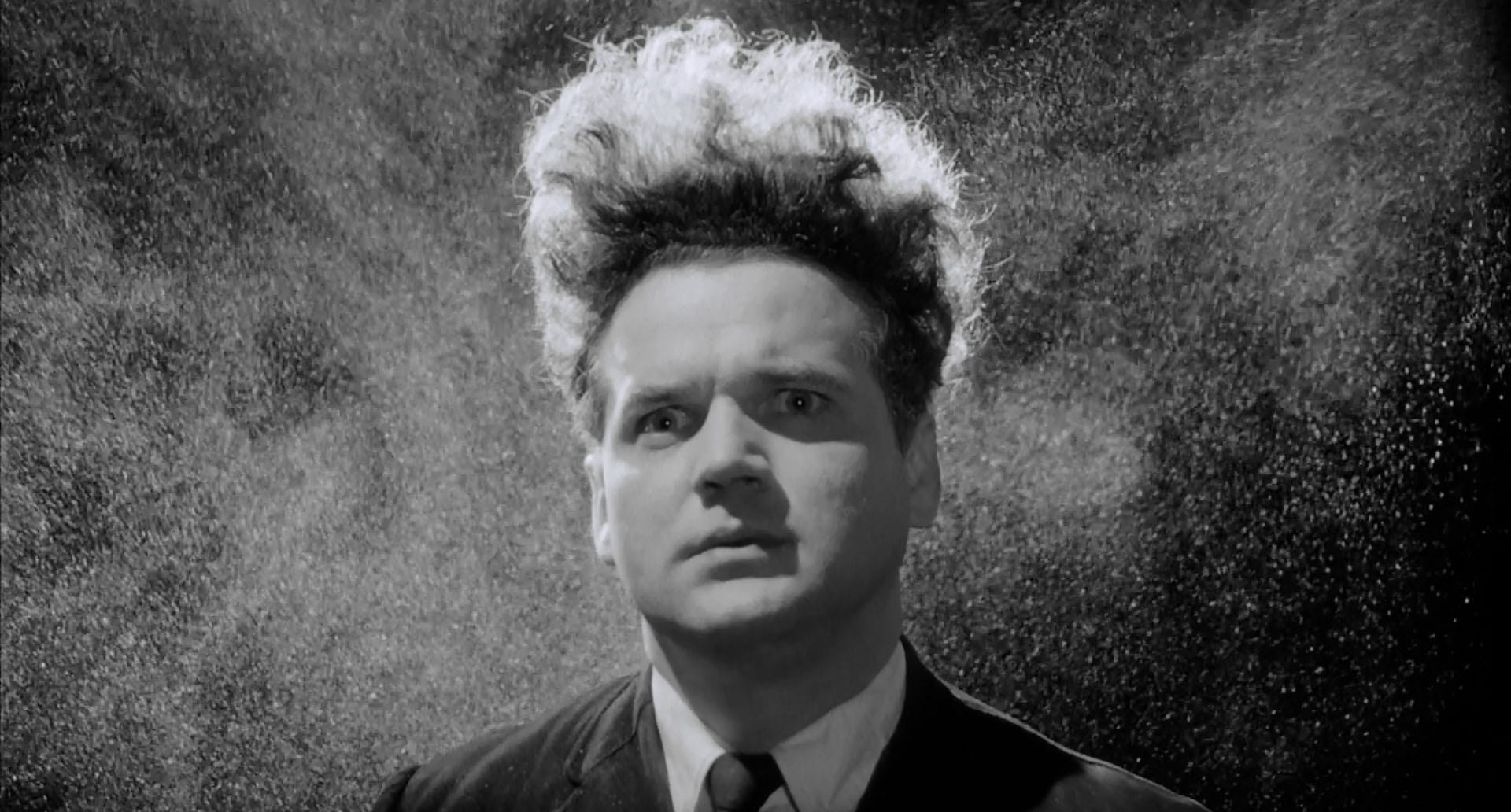
Right from the get-go the director has made music a central focus to his work. “For his debut feature, 1977’s Eraserhead, he worked on the sound design with collaborator Alan Splet for more than a year, tinkering with unorthodox foley techniques and producing dark ambient sounds full of static hiss, convulsing gargles, and eerie clangs,” explained Pitchfork.
Lynch also wrote the lyrics for Peter Ivers’s eerily dreamlike “In Heaven (Lady in the Radiator Song)”, which featured in the soundtrack, and eventually started to sing his own compositions – Inland Empire’s smoky “Ghost of Love” being a great example.
Over the past four decades, Lynch has continued to write his own compositions and collaborate with musicians and sound experts for his big and small screen projects. Lynch himself once said: “Sound is almost like a drug. It’s so pure that when it goes in your ears, it instantly does something to you.”

Singular obsessions
Lynch often takes individual songs and uses these obsessions to shape scenes and in some cases, even entire movies. This can be said for Bobby Vinton’s 1963 song “Blue Velvet”, which triggered Lynch’s imagination. “The track painted a picture and set the scene for the whole film,” noted Pitchfork. The same occurred with Samuel Barber’s “Adagio for Strings”, which the director said helped him to craft the ending for The Elephant Man.
David Bowie’s 1995 electro-pop deep cut ‘I’m Deranged’ led him to the opening speed and pulse of Lost Highway. And singer Rebekah Del Rio’s Spanish translation of Roy Orbison’s ‘Crying’ . . . opened up the disconcerting universe of Mulholland Drive.
These songs would often be heard by Lynch during chance encounters – in a cab, in a hotel room, sitting in his living room while catching up on the radio – and immediately ignite a cloudburst of inspiration and vision.

With his scores and soundtracks, Lynch takes these singular obsessions and weaves them into something far bigger, often working closely with longtime collaborator and composer Angelo Badalamenti as well as Hurley to create flowing soundscapes for each of his movies. The key word here is experiment.
As Hurley noted, “That’s at the root of his whole quest — it’s just about wanting to collide elements and see what comes out.” The results are the unsettling and utterly unique scores that both collide and complement with the surreal portraits the auteur paints.
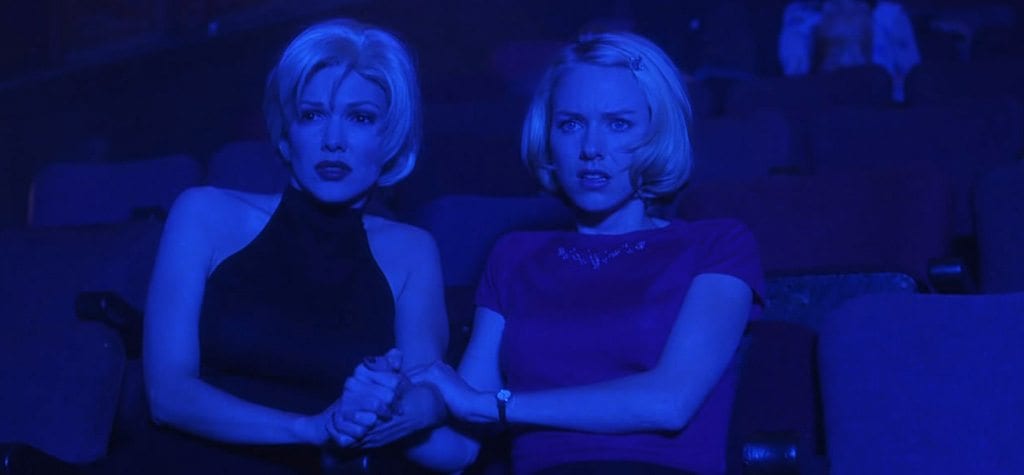
For many people, Lynch’s significant score starts with the sinister, encompassing Eraserhead. When discussing the 1977 film, Flaming Lips’s Wayne Coyne said, “His movies have such an unsettling effect on you because of the sound effects and the soundscapes — it’s a strange way to use music in a film.”
Duran Duran’s Nick Rhodes noted how the band was stunned by Eraserhead. “It had a real, lasting impact. And I love everything Angelo Badalamenti has done with David . . . the fact that the music had this creepiness — yet a sort of lightness to it as well — was intoxicating.”
This combination of “creepiness” and “lightness” is something Lynch has perfected with his collaborators Badalamenti and Hurley over the years. Arguably, no director has repurposed and incorporated music into his or her films quite like Lynch and to celebrate this fact, here are some of his greatest musical highlights.

Lost Highway: Mystery Man
Lynch’s surreal thriller saw a number of contributors to its many musical highlights, including English composer Barry Adamson as well as Badalamenti and Nine Inch Nails’s Trent Reznor. A great scene in which protagonist Fred Madison (played wonderfully by Bill Pullman) is at an LA gettogether is backed by Adamson’s “Something Wicked This Way Comes”, complimenting the relaxed party atmosphere.
However, the music fades out abruptly when Fred comes across the mystery man – a creepy portrayal by Robert Blake – and is replaced by a groaning background noise, heightening the sense of doom and dread. Adamson himself said, “The film is so up my street. I connected with it totally. It’s a thriller, it’s noir, there’s mystery, horror, it was perfect for me.”

Blue Velvet: “In Dreams”
Lynch’s encompassing thriller set in the underbelly of small town America demonstrated just how much talent was left in the 60s cinema icon Dennis Hopper (Easy Rider), who played the on-edge psychopath Frank Booth.
With music being the foundation of the film’s birth, there’s one particular standout scene when Frank takes Jeffrey (Kyle MacLachlan) to his drug dealer Ben’s (Dean Stockwell) house, where he starts to lip-sync Roy Orbison’s sentimental tune “In Dreams”. Sending Frank off the edge, writer Martin Podlucki stated, “This serves as yet another example of how Lynch’s films can be both beautiful and terrifying, absurd yet poignant – all at the same time.”

Wild at Heart: “Love Me”
A twisted, romantic road movie, Wild at Heart pays strong homage to Elvis Presley without once mentioning his name. Its magical, musical madness can be seen in a couple of scenes when star Nicolas Cage (at his cagiest) channels the King with renditions of “Love Me” and later “Love Me Tender”, both sang with rocking intensity as his sweetheart Lula looks on in utter adoration.
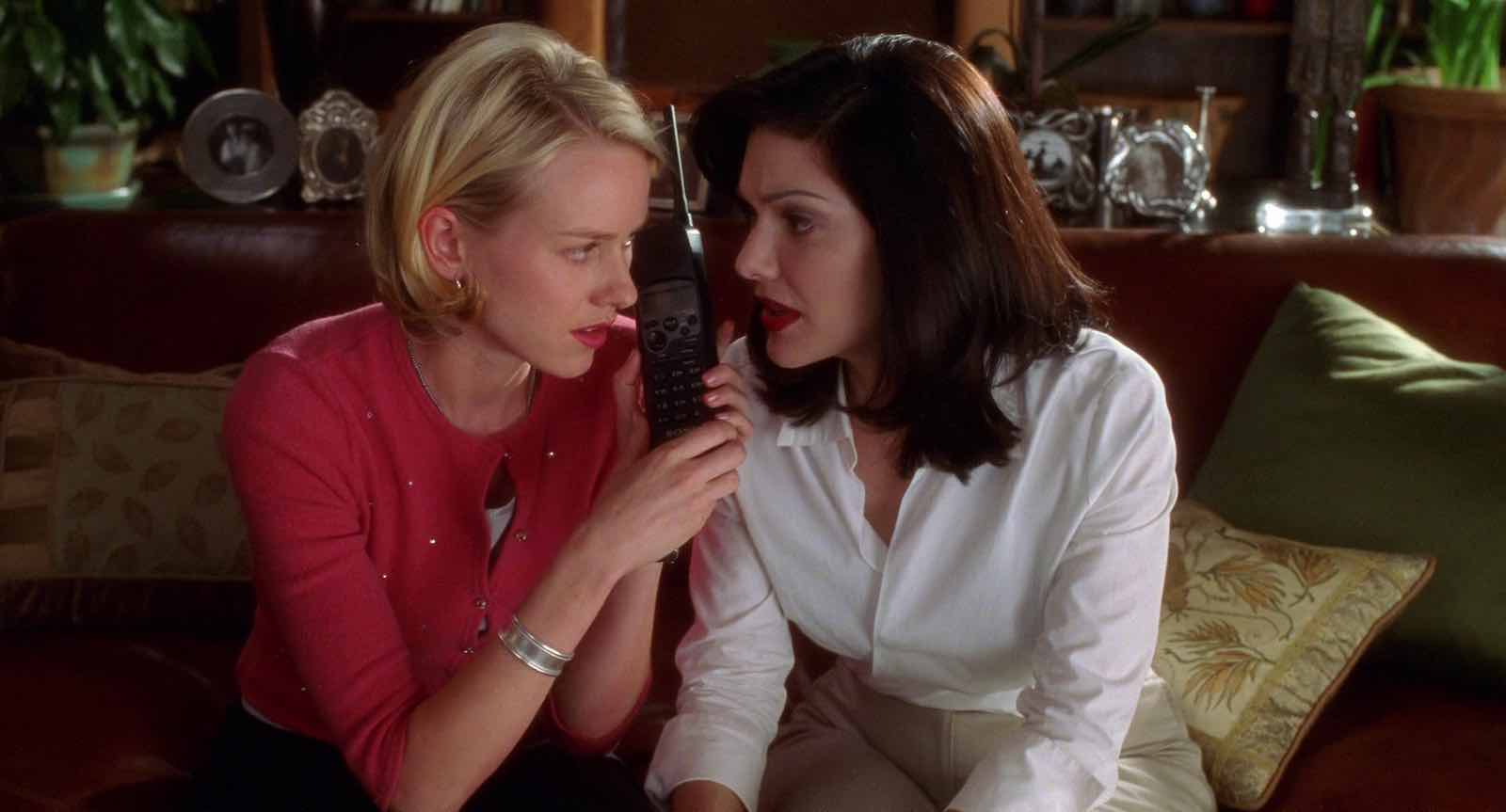
Mulholland Drive: “Llorando”
In this powerful, pivotal moment in Lynch’s surreal mystery thriller, we see lovers Betty (Naomi Watts) and Rita (Laura Harring) visit the ghostly Club Silencio where Rebekah Del Rio performs the Spanish, a cappella version of Roy Orbison’s “Crying” (which was retitled “Llorando”).
A truly impactful musical moment in Lynch’s oeuvre, the song creates a powerful punch of emotion. As The Guardian put it, “The open-ended narrative of Mulholland Drive, coupled with Lynch’s surreal technique, lends this movie a hallucinatory quality. It makes this scene even more jarring because Lynch’s use of music is so beautiful.”

Twin Peaks: “Falling”
Perhaps none of Lynch’s works have had quite the same impact musically as that of his soap opera crime series created with Mark Frost, Twin Peaks. “It’s inconceivable to separate Lynch and composer Angelo Badalamenti’s euphoric and amorphous score . . . with the show’s cinematic and narrative world,” wrote Pitchfork.
The show’s music has had a profound impact not just on TV creators and filmmakers, but also musicians. Flaming Lips’s Coyne went on to state that “Everyone we knew watched it religiously, and if you didn’t watch it, we didn’t like you,” while Nine Inch Nails’s Reznor said the band would delay gigs in the early 90s in order to tune in to Twin Peaks as it was airing. “That was a real problem on that tour. We had our priorities.”
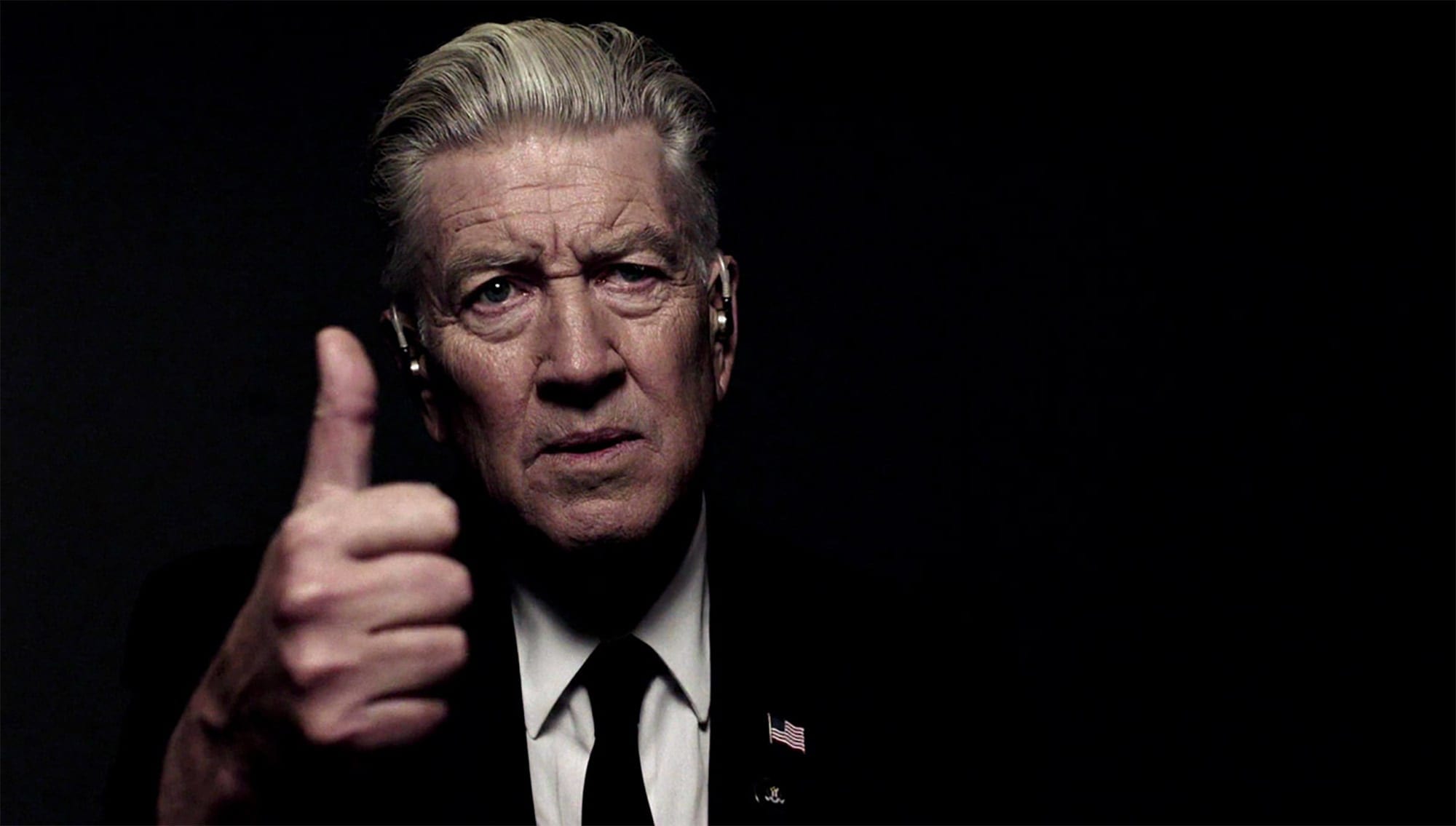
Many of the show’s characters have their own distinct on-screen themes, noted Podlucki. “These range from droning synths to what the composer termed ‘Cool Jazz’ numbers, featuring finger clicking and brushed percussion.”
However, the most iconic song from the series is its theme, composed by Badalamenti – a musical sensation, the tune went on to win a Grammy for best pop instrumental. Simple, provocative, dreamy, and hypnotic, the song draws viewers in and invites them to the strange world of Twin Peaks.





